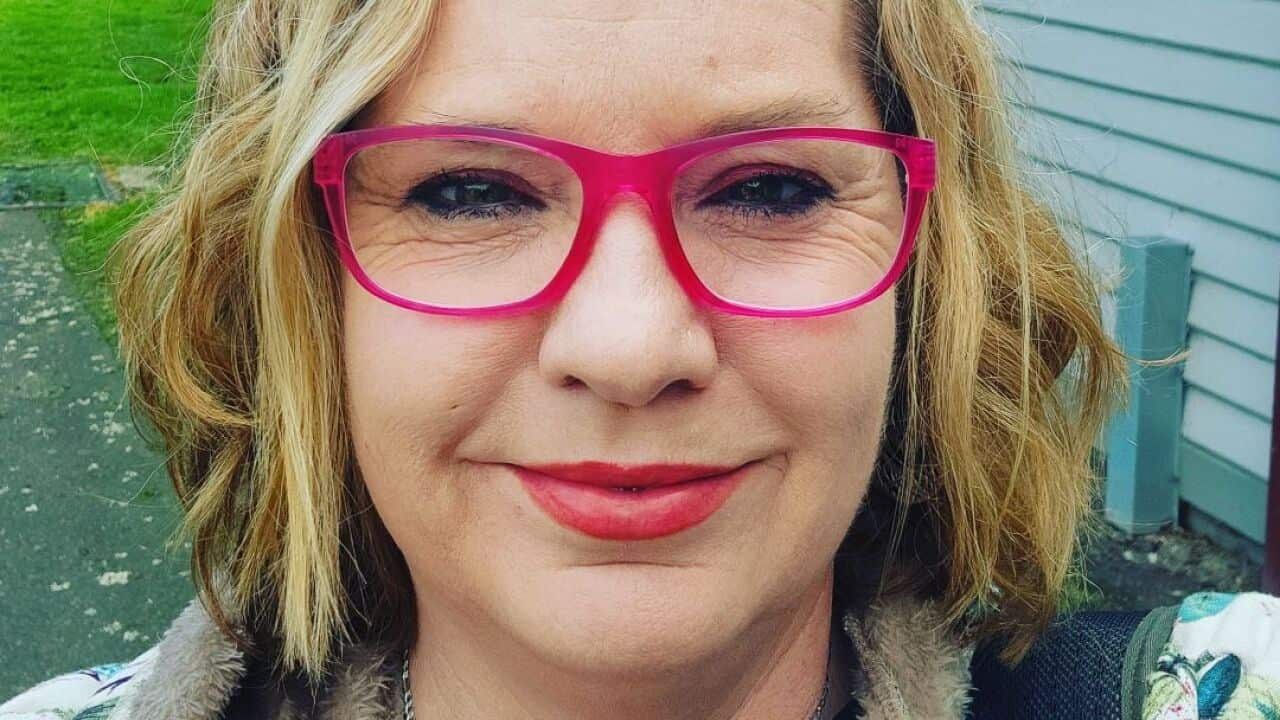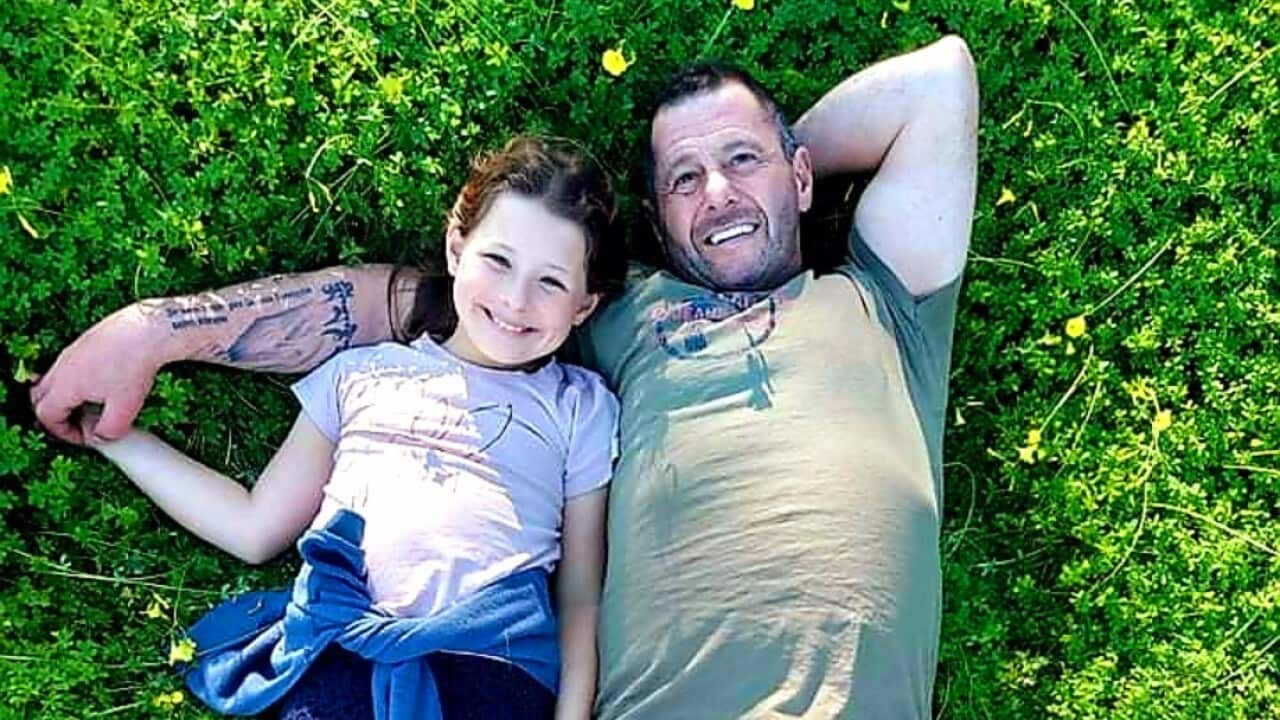One busy day in 1963 in the maternity ward of Melbourne's Queen Victoria Memorial Hospital, staff listed the wrong birth mother on the adoption papers of newborn Penny Mackieson.
It was likely an oversight by staff stretched by the constant demands of mothers, newborns and staff.
But it would have far-reaching consequences on numerous lives, especially Penny's.
Growing up in a small country town in Victoria's East Gippsland with her adopted brother and adoptive parents she would love as her own, Penny always knew she had a biological mother somewhere.
"My mum always told me my mother was young, living in inner northern Melbourne and had to give me up so she could continue with school," she told SBS Insight. "That was what the social worker who handed me over told them."
Penny's adoptive mum was always anxious that one day her daughter would go looking for her biological mother. "I was just very honest and said in the future I might," Penny said.

Penny Mackieson with her adoptive mother, Lois Mackieson, in 1963. Penny is just a few months old and this is probably the first photo ever taken of her. Source: Supplied
But when she accessed her adoption records, the details differed from what she’d been told.
"There was no mention of my mother being at school and she didn't come from the inner north of Melbourne," Penny said. "She came from the Latrobe Valley in Gippsland.
"With inner northern Melbourne being very multicultural, I had this idea that maybe one of my natural parents was Italian or Greek, but my mother was Anglo-Celtic."

A picture of Penny Mackieson in 1971 when she was eight years old. Source: Supplied
"That was a devastating event in my life, and I felt the need to connect with my natural family. I pulled those records out and wrote a letter to my mother."
'You look like your father's family'
The woman replied almost immediately.
"She said I've been waiting for you to contact me ever since you were born."
They sent letters back and forth for months, which Penny kept secret from her adoptive mother, who was upset by the contact. They met in person a few months later.
It was a pleasant encounter, and for over 20 years Penny worked hard to build relationships with the family.
"We did things together and I travelled with my half-sister. But I became increasingly perturbed over time that I wasn't really like them. My mother kept saying you look like your father's family but she didn't have any photos and she wasn't in touch with them. I just really wanted to know who I was like, if not physically, at least in personality. I'm very outgoing and expressive and they were not.

For over 20 years Penny Mackieson worked hard to build a relationship with her 'mother' and half siblings. Source: Supplied
In 2016 she took an Ancestry DNA test. The results were a "shock".
"There were no names of relatives I recognised and more than half of them were Greek. I thought they mixed up the test but when Ancestry DNA confirmed it was correct I began to realise I'd been swapped in hospital before being placed with my adoptive family."
She eventually persuaded the woman she thought was her mother to take a test too.
"It showed we were not related at all, and there was no overlap of our ethnic background. It was like a punch in the face for her that I wasn't the child she had given up, and for my half-sister, and it was the beginning of the end of our relationships.
"I felt the loss of people who were important in my life and the loss of thinking that's who I was."
'Winning the lottery'
With the DNA test results in hand, Penny went to an adoption information service and asked them to look for Greek mothers in hospital at the time she was born.
They found her mother, who was alive and living in Greece and reached out to her, but she wanted no contact and refused to do a DNA test; shame among mothers who gave birth out of wedlock in the 1960s cut deep.
But the service eventually made contact with her sons, who agreed to do one.
The test results confirmed they were half-siblings.

As she grew older, Penny Mackieson became more desperate to learn about her biological family. Source: Supplied
"They wanted to meet me, and they wanted our mother to meet me. They talked to her and told her that they knew her secret and that they were embracing me."
Penny travelled to Greece to meet her birth mother and siblings for the first time in April. Immediately she saw the resemblance, which was overwhelming.
"I could tell that she was just trying to keep it together. And of course, the minute I hugged her, I lost it," Penny recalled. "But it was hard. I don't speak Greek. She wanted to speak with me privately but she couldn't.
"Later she told me that as soon as I walked through the door, I looked like her mother. There was no question for her that I was her daughter. My half-siblings said I looked just like our mum from some years ago. Our expressions and personalities are similar plus we all love football."
Penny has finally learned what happened to her mother all those years ago. How in her early 20s, single and pregnant, she fled her small Greek village and travelled to Australia by boat, alone, afraid and speaking no English. When she gave birth, a social worker explained in Greek that as a single mother, she would have to give up her child.
Shortly after Penny's birth, she married a newly-arrived Greek man and they had three children together in Melbourne before returning to Greece in the 70s. She never told her other children about the sister she thought they'd never know.
But throughout her life, whenever she went into a church, she would light a candle for the daughter she was not allowed to keep.
Making up for lost time
Penny, who has written a book Greek, Actually: Disentangling Adoption Deceptions, says she still "dearly loves" her adoptive parents, who are now deceased, but her focus now is on learning Greek, making up for lost time with her family – and learning about who her father was.
"My mother still has that secret and wants to have that conversation in private with me in Greek. I have another trip planned next year, so I'm hoping that my Greek will be good enough by then. Then the year after, I'm planning to live in Greece for a few months. I'm learning about my culture of origin and who I am."
Penny says she's carried a lot of anger about what happened on that fateful day in 1963.
"My life could have been so different. I was led on this hugely divergent path and invested so much of my life thinking I had been Anglo-Celtic. I feel like I wasted a big part of my life and I'll never get that back."
But she's desperate to make the most of the time they all have left.
"I feel much more grounded and happier to know I've found my tribe. I now look in the mirror and see a Greek person. I want to get to know my family, connect with them. I can't wait to do all of that."
Readers seeking support with mental health can contact Beyond Blue on 1300 22 4636. More information is available at .
supports people from culturally and linguistically diverse backgrounds.




